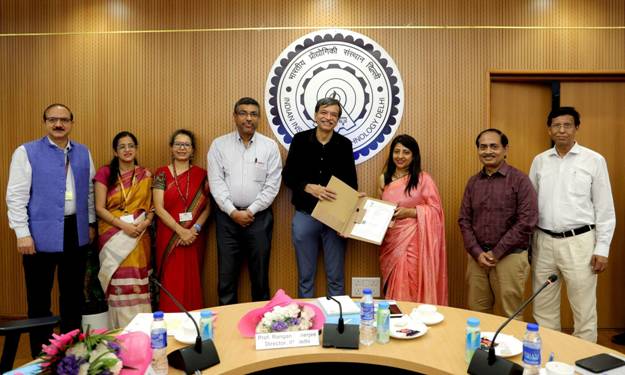New Delhi: The Indian Institute of Technology Delhi (IITD) hosted a significant event marking the transfer of two indigenous healthcare technologies to the industry. These technologies were developed under the Ministry of Electronics and Information Technology (MeitY)-funded project, Nanoelectronics Network for Research and Applications (NNetRA).
The technology transfer ceremony was graced by distinguished dignitaries including Shri S. Krishnan, Secretary, MeitY, Professor Rangan Banerjee, Director, IITD, Bhuvnesh Kumar, Additional Secretary, MeitY, Sunita Verma, Senior Director and Group Coordinator (R&D in Electronics and IT), MeitY, the FITT team, Prof. Neeraj Khare, the Chief Investigator of the project, and Dr. Sangeeta Semwal, Scientist E, MeitY. The Foundation for Innovation and Technology Transfer (FITT) at IIT Delhi played a pivotal role in facilitating this technology transfer.
The first technology, “DNA Aptamer for Prostate Cancer Detection,” was transferred to Dr. Swapnil Sinha of HUMMSA Biotech Pvt. Ltd., Kolkata. Developed by Prof. Prashant Mishra and his team at IIT Delhi, this aptamer can bind to specific oncogenes and serves as a potential theranostic tool for prostate cancer.
The second technology, “Photonic Chip-Based Spectrometric Biosensor” for pathogen detection, was transferred to Nitin Zaveri of UNINO Healthcare Private Limited, Mumbai. This innovative technology, developed by Prof. Joby Joseph and his team at IIT Delhi, enables quick and accurate detection of pathogens, aiding in the prevention of infectious diseases.
S Krishnan, Secretary, MeitY, congratulated the teams on the successful transfer of these technologies. He emphasized, “We envision a future where technology transfer continues to drive innovation, collaboration, and sustainable development. Measures need to be taken to ensure the successful adoption, implementation, and commercialization of these technologies.”





